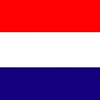If the bill proposed by independent parliamentarian Raad Al-Maliki is passed, same-sex relationships in Iraq could be subject to the death penalty or long prison sentences. The bill also includes provisions regarding transgender women. "Imitating a woman" would be punishable by three years in prison or a fine exceeding 7,000 euros. This is defined in the law as wearing makeup and women's clothing or appearing "as a woman" in public.
Human Rights Watch (HRW) has criticised the bill. The human rights organisation is concerned about the escalating anti-LGBT+ violence in the country, which, according to LGBT+ researcher Rasha Younes, is exacerbated by the government. This summer, the government banned the use of "homosexuality" in the media, replacing it with "sexual deviation."
Younes stated, "The Iraqi government has failed to address discrimination. Instead, it has promoted anti-LGBT+ sentiments through morality-based legislation that fuels violence and discrimination against marginalised sexual and gender minorities. The Iraqi government must immediately abandon the proposed anti-LGBT+ law and put an end to the cycle of violence and impunity against LGBT+ individuals."
Although homosexuality is not officially prohibited in Iraq, acceptance of it is low. LGBT+ individuals regularly face discrimination and violence. In response to recent Quran burnings in Scandinavian countries, rainbow flags have been set on fire in Iraq. Politicians often use opposition to LGBT+ emancipation as a fertile ground to rally against the West. There have also been cases of armed militias abusing LGBT+ individuals.















